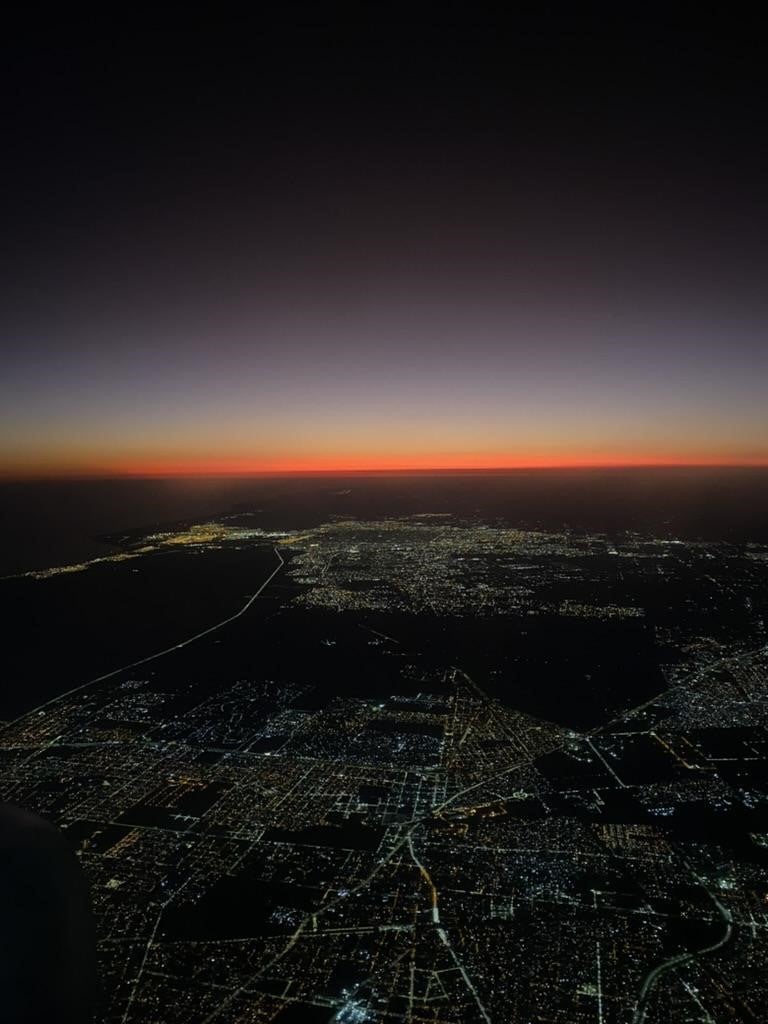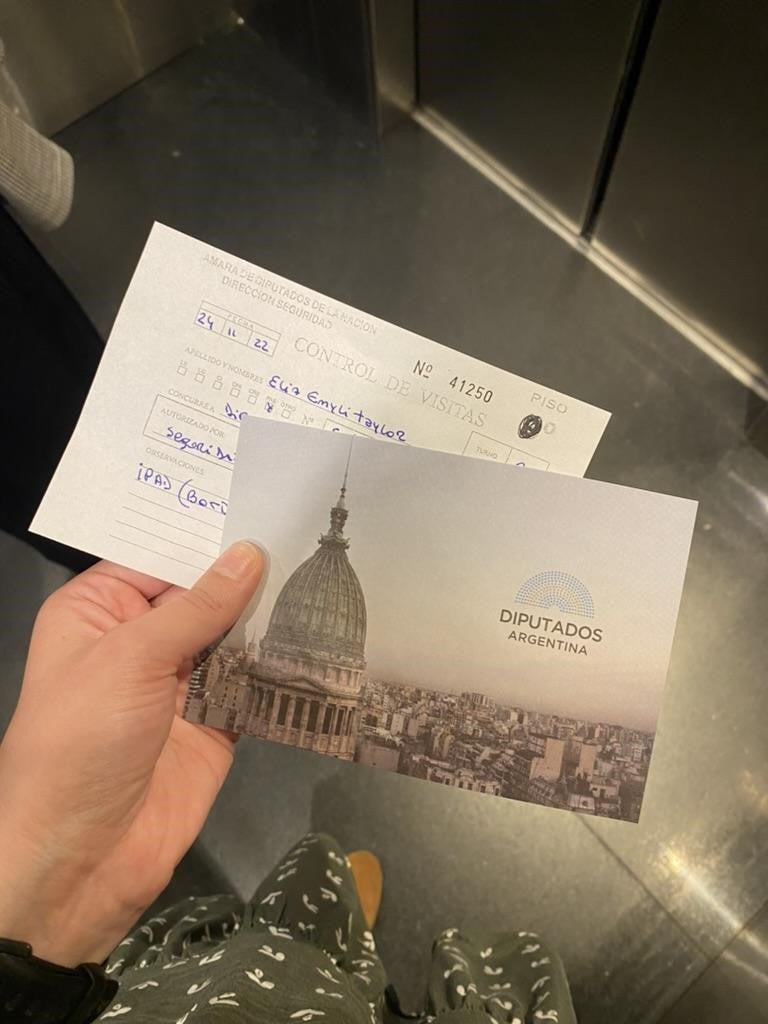Fieldwork can be an invaluable experience during graduate school, and in many fields it is highly encouraged if not necessary to conduct fieldwork for your dissertation. Though fieldwork is often valued, it is intimidating to know how to get started, and the unique circumstances of each researcher’s fieldwork can make it hard to find more general advice. Below are some pieces of advice that were given to me during fieldwork prep and that have, in my opinion, proved to be very helpful – especially in the context of social science research geared toward conducting interviews and collecting qualitative data.
Reach out to researchers who have done the kind of fieldwork you want to do
This first piece of advice may sound obvious, but, as you’re preparing for fieldwork, talking to scholars who have done what you aim to do should be a top priority. Not all fieldwork is the same! People who have done similar work are going to be able to provide you with better advice than those who have not. What I mean by this is that if your fieldwork consists of conducting elite interviews, someone whose fieldwork consisted of hosting voter focus groups probably cannot speak to the norms around elite interviews, and vice versa. Are there any recent articles or books that use fieldwork similar to the fieldwork you want to conduct? If so, consider contacting the scholars behind those projects. In my experience, most scholars are happy to provide advice to graduate students about fieldwork. Reaching out to scholars with a polite, professional email asking if they would have any time to chat, either via email or Zoom, about their fieldwork experience can open up the door to a lot of valuable “insider” information. You may even be given contacts that you can use while in the field!
Talking to individuals who have done the kind of work you’re aiming to do is a great way to learn the unofficial rules of fieldwork that may not be obvious to a first-timer. What are the norms around reaching out to interview subjects in your target country? Which contact methods work best? What kind of information should you be prepared to provide when seeking IRB approval for this fieldwork? What area of a city is best to live in? Gathering information about questions like these will help you best prepare for the field.
Tell everybody that you meet what you’re doing — really!
As someone whose fieldwork consisted of conducting elite interviews, getting connections to elites was a major priority and not an easy task. Many cold-emails and cold-calls to elites, especially politicians, go unanswered. Having a personal connection to an elite can make it more likely that you’ll be able to get in touch with them and actually schedule an interview. When prepping for the field, and then once in the field, don’t be afraid to tell everyone you meet what you are doing because you never know who people know! People may have connections to the individuals or groups you’re trying to interview through work, friends, or even family, and they may offer to help connect you to these people. You may discover a serendipitous connection that leads to great interview access.

Make connections with scholars in your fieldwork country
Fieldwork can be isolating. Often, you are going to another country by yourself and living alone, unattached to any institution, conducting your independent research solo. That can get lonely! A great way to meet people and also expand your scholarly network is to reach out to scholars in your field who work in your fieldwork country, even if their work does not directly connect to yours. Connecting with scholars in your fieldwork country is a great way to expand your professional network beyond US-based scholars. These scholars will also often be able to provide advice about conducting research in the country, and they may even be able to help connect you to individuals that can assist you in your fieldwork.
Research aside, these connections are also a great way to meet people who you know you can connect with as a fellow academic. When I conducted fieldwork, I reached out to other political scientists at some of the universities in the city I was living in via email, explained who I was and what I was doing for fieldwork, and asked if they would have any time to grab coffee on their campuses and chat about research. Everyone I reached out to was open to meeting with me and incredibly welcoming!
Take advantage of social and resource groups for other people abroad
Another great way to meet people while doing fieldwork is through social media groups for other individuals abroad. There are lots of online communities that focus on connecting people living in a foreign country/city, especially given the rise of remote work and the “digital nomad” lifestyle in which many US-based individuals with remote jobs travel around the world as they work. I found multiple Facebook groups designed to connect foreigners in Buenos Aires, Argentina, the city I was based in for my fieldwork. These groups were great for two reasons. First, they are a wealth of knowledge and resources, as people are constantly asking questions about life in the country/city, from doctor recommendations to best weekend getaways. Second, these groups often have social events going on that are designed to connect foreigners who do not know anyone. I went to various social events during my fieldwork to meet people, and I even developed a small group of friends during my time in the field. We would go out to dinner frequently, grab drinks at cool bars, watch the World Cup together, etc. It was nice to not be alone all the time! Take advantage of these kinds of groups for some much needed social time in the field.

Building a network in the field takes time
When planning your fieldwork, expect things to take longer than you think. Many interviews happen through the snowball method: at the end of an interview, you ask the interviewee if they have recommendations for other interview subjects and if they can connect you to them, and this “snowballs” into a chain of connections. Snowballing can be a great way to get connected with relevant interviewees, but the drawback of snowballing is that you need to get at least one interview first without those professional connections before you can start the snowball process. Once the snowball process starts, you tend to get interviews more quickly, but getting that initial interview can take time because you are in the early stages of building your network in the field. Sometimes, you also need to spend considerable time building trust with people before you are fully let into their social-professional circles, especially if you are doing fieldwork on sensitive topics.
Building a network takes time. Your first few weeks in the field will likely be spent acquiring contacts and developing communication with people, and sometimes interviews won’t even start until about a month in. My fieldwork lasted three months, which was what I could afford with the grant I received as well as the amount of time that worked with my other academic responsibilities. When my fieldwork concluded, I felt like I needed three more months to really maximize my interview process. I felt like my network was finally growing considerably by the end of Month 3, and if I had been able to stay in the country longer, I think I would have been able to really expand my pool of interviewees.
As graduate students, we are limited by funding we have for fieldwork and by responsibilities we have, such as teaching or preparing for the job market, and these factors put time restraints on field work. Any time you can spend in the field will be worth it, and I believe it is beneficial to go into the field even if it is for a short time period. But if you are able to be in the field for a longer duration, that will greatly benefit your data collection process. When making plans for the field, expect everything you need to do to take a bit longer than expected.
Have clear expectations about funding
Most graduate students are able to conduct fieldwork thanks to grant funding. My fieldwork was funded by a Wagoner Foreign Study Scholarship. Having clear expectations about funding may sound like a very obvious piece of advice, but fieldwork can be trickier to budget for than other kinds of research, so making sure you have a good understanding of the cost of living in your destination country is paramount.
The cost of living in another country can be difficult to predict, especially if your destination tends to have a volatile economy. Exchange rates also add an extra layer of budgeting difficulty. If you know anyone who has spent time living in your destination country, they can be a great help as you develop your budget. Alternatively, if you know other grad students who have recently done fieldwork in your destination country, their budgets may be able to help you plan yours accordingly.
Having clear expectations about funding is also important because it can be unclear what kind of field expenses are covered by grants. Some grants will cover costs like housing and airfare but not food expenses. Some grants will cover the cost of field equipment needed while others will not. Some grants allow you to take cash with you to your destination country while other grants will only reimburse you. When applying to grants and eventually planning the actual trip, make sure you have a clear understanding of what costs your grant covers and how you will be able to access the money during fieldwork. You will be in a bad spot if you are a few weeks out from flying to another country for multiple months and find out only then that you cannot take grant cash with you like you thought you could. Take time to carefully read the rules of your grant, and reach out to relevant offices on campus before your trip with questions so that you are not scrambling financially in the field due to a misunderstanding.

